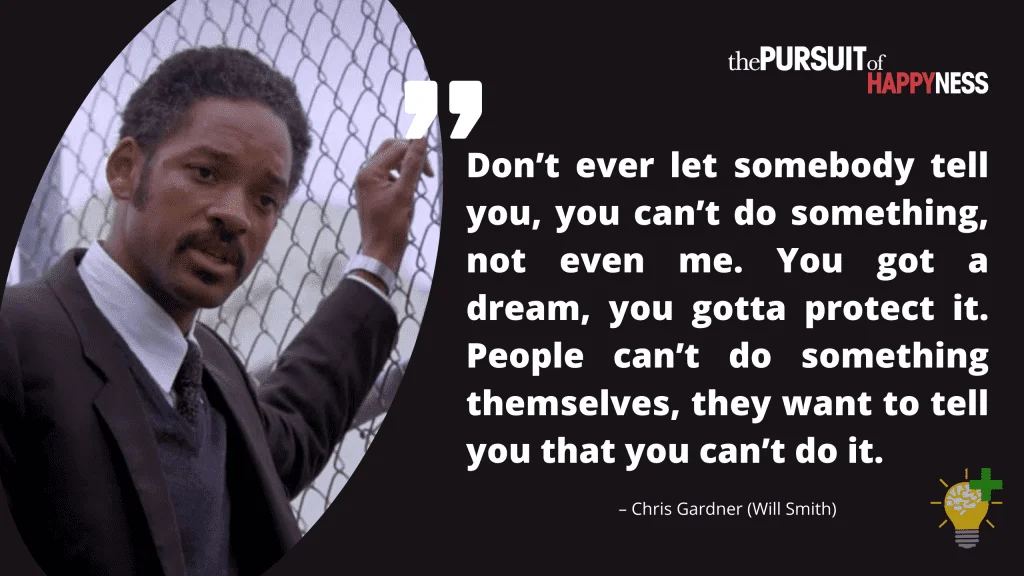Do you often find yourself sweating the small stuff? Perhaps you find yourself overthinking something someone did, or you did. Maybe it was a demeaning comment, an ambiguous statement, or a sarcastic response from a colleague.
Some of these things do not deserve your attention and energy. So, here are tips on how to not let things bother you and to let them go.
Understand Yourself and Why You Let Things Bother You
Our response to situations varies from one person to another depending on factors such as personality type, upbringing, life experiences, life skills, age, etc. For instance, an empath is more likely to hold on to things for long as they are more emotionally in touch. On the other hand, someone who has high confidence is less likely to linger for too long on demeaning statements said to them.
Investigate why a certain thing bothers you. Maybe you care about the other person. Or, you have low self-esteem, and your self-worth is pegged on what other people think about you. Perhaps you feel guilty for doing something wrong to the other person. It is easier to address the root of your worry when you know it.
In the case of low self-esteem or a personality that makes you prone to worry, focus on self-development to build mental and emotional resilience. If you wronged someone and it is bothering you, own it up and apologize. In the case of someone you love but who keeps hurting you, you might want to stop caring about them and let the relationship go.
Process Your Feelings About the Situation
The best way to overcome your emotions about a situation is to face them. Don’t bury or ignore them. Rather, identify and investigate these negative emotions.
Identify the exact feelings and negative emotions you are experiencing and their main cause. You could just think them out or journal about them.
Journal About the Issue and Your Emotions

Sometimes all you need to gain clarity is a brain dump. You find that if too many thoughts are lingering in your mind about a situation, they crowd your emotions and perspective. Therapists like to say, “make the implicit explicit.” It simply means clarifying the vague, jumbled-up thoughts and emotions.
Journaling is one of the best tools for making the implicit explicit. It involves putting down the issue on paper and describing how you feel or what you think about it to see all the aspects of your negative feelings with clarity.
According to Matthew Lieberman, a UCLA psychologist, journaling helps control the intensity of your emotions about an issue. He conducted brain scans on volunteers that revealed that writing down your emotions on paper reduces activity in the amygdala part of the brain.
The amygdala is responsible for controlling the intensity of your emotions. The study also found that journaling by hand on paper was more beneficial than typing.
Here are some journaling prompts to help you think through something bothering you:
- What happened? Describe the situation in as much detail as possible
- What do you think about the situation?
- How do you feel about the situation?
- Why are you worried or bothered?
- What other emotions could you be hiding about the situation?
- What has this situation taught you?
- Are there boundaries you need to set?
- What would it take for you to feel better about this situation and move forward?
When journaling, don’t pay too much attention to writing neatly or being grammatically correct. Just focus on transferring your ideas to the paper, even if they are just little things. If you find it difficult to write, you can present the situation, your thoughts, and your ideas in the form of a chart or diagram.
Journaling works for processing major one-time events that bother you and the day-to-day happenings. If you constantly worry about trivial events and negative thoughts, journaling daily can be greatly beneficial.
Set aside 10-20 minutes each day to check in with your thoughts and emotions. Put down on paper your mood, the dominant emotions throughout the day, and things you are worried about. By doing this exercise consistently, you will find that you will have mental clarity, and you will feel emotionally centered and relieved.
Write a Letter You Will Never Send
This method works if you are working through a specific situation that is bothering you that involves someone else who you will never get a chance to confront or talk to about the issue.
Writing a letter to them that you will never send helps you express your needs, wants, or get closure without involving the other person directly.
Therefore, write the letter in as much detail as possible. Like with journaling, point out the issues that are bothering you, how you feel and what you think, and say what you would want to say to the person.
Be completely vulnerable in the letter, bearing in mind that the other person will never read it. Then burn it, shred it, or flush it down the toilet as a symbol of letting go of a bad thing in the present moment.
Create a Vision for How You Would Like Your Life to Be
If you find yourself constantly worried, bothered, and anxious, you might need to make major changes in your life to promote peace and calm. Start by identifying what bothers you most.
Are they outward or internal factors such as mental health issues, e.g., depression and emotions? Maybe, your relationships are disempowering, or your place of work is toxic. Perhaps, you need to learn to communicate effectively and to speak up for yourself.
Once you have identified areas that need improvement, envision your ideal peaceful life. Focus on the solutions and what you want to bring more of in your life. Write down how you would like the different aspects of your life to be going and how you would like to respond to things that bother you. Additionally, how would you predominantly like to feel? What would you like to be different?
For instance, if you struggle with setting boundaries, envision what you would say or do to set the boundaries. How would your life be different? How you would show up in life if you believed in yourself and believed that you deserve to be loved. Then, focus on doing what you can to make your envisioned life a reality.
Work With a Therapist to Heal Your Inner Child

I recently learned that our inner child wounds and blueprints are at the core of most issues we struggle with as adults. Our subconscious conditioning causes us to feel, think, and behave in a certain way.
For instance, if you find that you are a people pleaser who is bothered by what people think about you or how they perceive you, it may stem from an inner child wound of invalidation and criticism.
It might be difficult to identify this subconscious conditioning, which necessitates that you work with a therapist. A therapist will offer you tools and coaching to help you rewire your beliefs and blueprints and heal your inner wounds.
Practice Gratitude Daily
Gratitude is a powerful tool for bringing calm and peace to your mind, boosting your mood, and cultivating a positive perspective towards life for personal growth. When you are worried and bothered, your mind tends to lean towards negative emotions and negative thoughts.
However, a simple gratitude practice can shift your train of thought to a more positive one. Gratitude cultivates a deep sense of serenity and harmony even when bothersome things happen. It helps you master your mind and emotion.
There are several ways to practice gratitude, including:
- Taking a few minutes in the course of your day to reflect on what is working and to express gratitude for it
- Keep a gratitude journal
- Keeping a gratitude jar where you put notes about what you are grateful for
- Expressing your gratitude to other people
- Doing a gratitude meditation and breathing exercises
Whichever method works for you, it is important to maintain a daily gratitude practice. Psychology experts recommend having a gratitude practice in the morning within a few minutes of waking up and in the evening before bed. It is just a small thing you can do to spur your own personal growth.
While these times optimize the effects of gratitude as your mind is in the alpha state, any time that works for you is better than not practicing gratitude.
Clarify Your Locus of Control
Locus of control is a psychological concept that categorizes one’s belief system regarding their experiences as either internal or external. If you have an internal locus of control, you believe that the things that bother you are within your control. On the other hand, if you have an external locus of control, you feel that the things that bother you are out of your control.
No matter your primary locus of control, the reality is that there are things within your control in life while others are not. You must establish what is within your control and what is not. Then, focus on what is in your control or what you can influence.
For instance, let’s say that you are bothered by the trajectory of your relationship. While you may not be able to control how your partner feels, thinks, or does what they do, you can control your attitude, how you talk, and what you do to find happiness. Then maybe, how you show up, e.g., as kind and gentle, might influence how your partner responds to you.
Therefore, for every situation bothering you, the important thing is to establish what is in your control, out of control, or within your influence. It is a powerful exercise that will help you understand what action to take. It also helps to reduce stress and emotional pain about the situation.
Have a Calming Strategy
Having a calming strategy not only helps you to let go of things that bother you, but it is also a proactive way of ensuring you do not get bothered unnecessarily in the first place. It is ultimately pivotal for stress management.
There is scientific evidence that shows various relaxation techniques activate the sympathetic system, which switches off the fight or flight mode in the body. Consequently, lowering cortisol and adrenaline levels leaves you more relaxed and calmer.
There are various calming and relaxation techniques you can incorporate into your life on a day-to-day basis or for coping during stressful times. These include yoga, meditation, breathing techniques, prayer, listening to your favorite music, exercising, nature walks, and massage.
Consider combining various relaxation techniques. You can try out the different ones to identify those that resonate with you.
Seek Support from Your Loved Ones

It is said that a problem shared is a problem half-solved. Don’t bottle up issues that bother you. Talk about them with someone you trust. Doing so allows you to vent, and your loved ones can console you and offer support. They may also help you gain clarity and perspective of the issue, determining the right action to take or let go of.
Don’t Overthink It
As humans, we tend to create a mountain out of a molehill, making things seem worse than they actually are. Endeavor to see things as they are and to deal with them as they come. Refrain from making assumptions and assess each situation based on facts.
Final Thoughts
As long as you care and are actively engaged in your relationships and life, you will encounter things that bother you. Nevertheless, you must understand that not everything is worth sweating about. Neither is everything within your control.
Therefore, cultivate a positive attitude towards life and build mental, spiritual, and emotional resilience. Assess things that bother you to determine what you can control or influence, then take the necessary action.
Seek support from your loved ones or a professional if need be. Practice gratitude daily, incorporate calming techniques in your life and do not overthink things.




